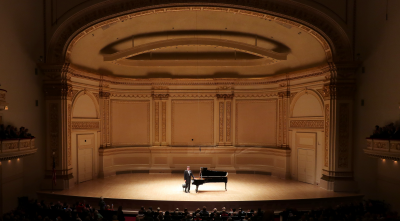 Denis Matsuev
Denis Matsuev
Denis Matsuev strode on to the Carnegie stage on Sunday October 20th, 2019.
Well over 6 feet tall, he looked powerful and solid, the proverbial Russian bear.
Outside Carnegie, a group of protesters chanted in Russian that Matsuev supports war. But surely there are more effective ways to critique Russian foreign policy than harassing a world-class pianist!
Liszt: Piano Sonata in B minor
Liszt’s Sonata opens with a deep pulse in the Steinway’s chocolately low end. Matsuev paced this perfectly. Then it explodes into drama and episodic wandering, interspersed with archetypally Liszt-ian hammering climaxes.
This is a self-consciously great work. It is difficult for the pianist to imbue it with gravitas, because the work is patchy and wanders a lot. In Matsuev’s hands it felt harmonically muddy and sometimes rushed. For comparison, here is a recording of Marta Argerich.
The Roving Pianist Concert Clown award goes to the man who stood and started clapping before the last notes died away.
Liszt: Mephisto Waltz No. 1 S. 514
The Mephisto Waltz gives the pianist more to work with. It is an adventurous, lively work and Matsuev was wholly on top of it, sometimes to excess. Again there was some rushing. To be fair, the audience wanted a virtuoso performance and Matsuev obliged. At times the piano shook visibly from his raw power. This was the Matsuev machine we had come to see, a massive performance that brought the audience to its feet.
Tchaikovsky: Dumka in C minor Op. 59
Tchaikovsky’s symphonies and concertos are the core of this cinematic Russian composer’s public image. Piano-lovers are familiar with his The Seasons. The Dumka is less well-known. It combines oh-so-Russian descending minor progressions with a dance that alternately sounds like fairies and trolls. Alas the dancers are unable to rise above the beautiful gloom.
From a pianist famed for how much noise he can get out of a piano, Matsuev’s Dumka was an unexpected treasure.
Stravinsky: Three Movements from Petrushka
Here again was a percussive showpiece for Matsuev to strut his stuff. I’ve heard many pianists play Stravinsky, and Matsuev’s rendition was one of the more impressive. But my response was muted because by then my appetite for hammering was overshadowed by the need to hear something more fulfilling.
Encores
Like Yuja Wang at Carnegie in 2016, Denis Matsuev really came alive with his encores.
As I have mentioned to other concert pianists, the audience may not recognize your encores. Even just naming the composer will help us figure it out. But Matsuev did not talk to us, and I recognized only two of his four encores. Later I identified the Sibelius by browsing recordings of Matsuev. Of the remaining unidentified encore, I can only say that it was light and possibly Russian.
Rachmaninov Études-Tableaux Op. 39 No. 2 in A minor
Rachmaninov was, for this reviewer, the highlight of Matsuev’s recital. It was lighter in the left hand than I prefer, but still had that heart-bursting cacophonous climax that I first heard played by the young Russian pianist Ivan Gusev.
Sibelius Etude No. 2 from Thirteen Pieces, Op. 76
I did not recognize this encore, but I could tell it was Russian. Wrong! Although it could pass for a Russian sailors’ hornpipe, it turned out to have been Sibelius. Not so far off geographically, I suppose.
Grieg-Ginzburg In the Hall of the Mountain King
Matsuev’s last encore was the Ginzburg arrangement of In the Hall of the Mountain King from Grieg’s Peer Gynt Suite No. 1. Matsuev sauced it up by playing the declamatory first note and extending the subsequent pause while chuckling with the audience. There followed an unashamedly hammered, ridiculously over-speed performance that was breathtaking to watch.
Final Thoughts
I enjoyed this concert, but I wish that Denis Matsuev had chosen a more integrated Liszt work, e.g. Harmonies du Soir. Compared with Rachmaninov’s Études-Tableaux, Liszt’s B minor Sonata seemed like a waste of Matsuev’s talent. If his audience wants him to hammer the piano, Rachmaninov offers plenty options.
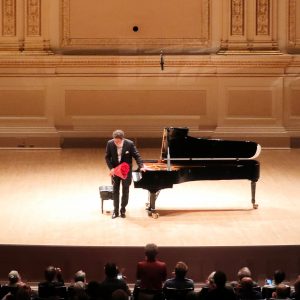
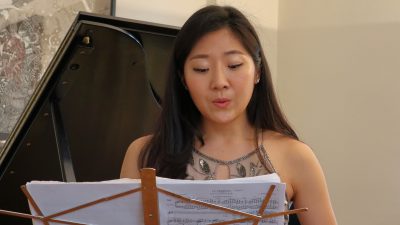
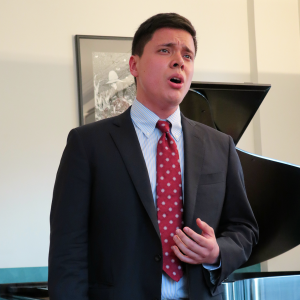
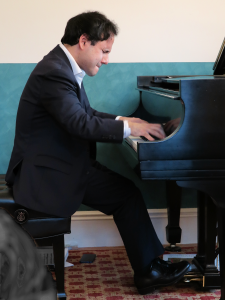
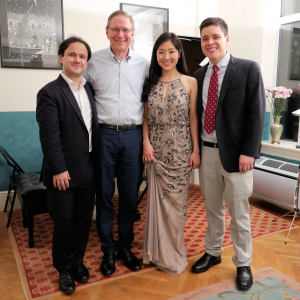
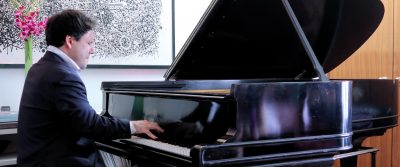
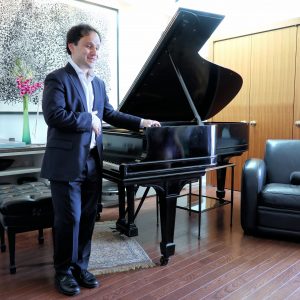
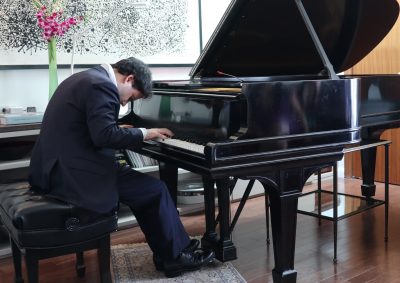
You must be logged in to post a comment.